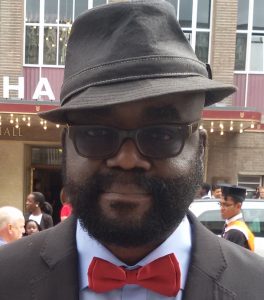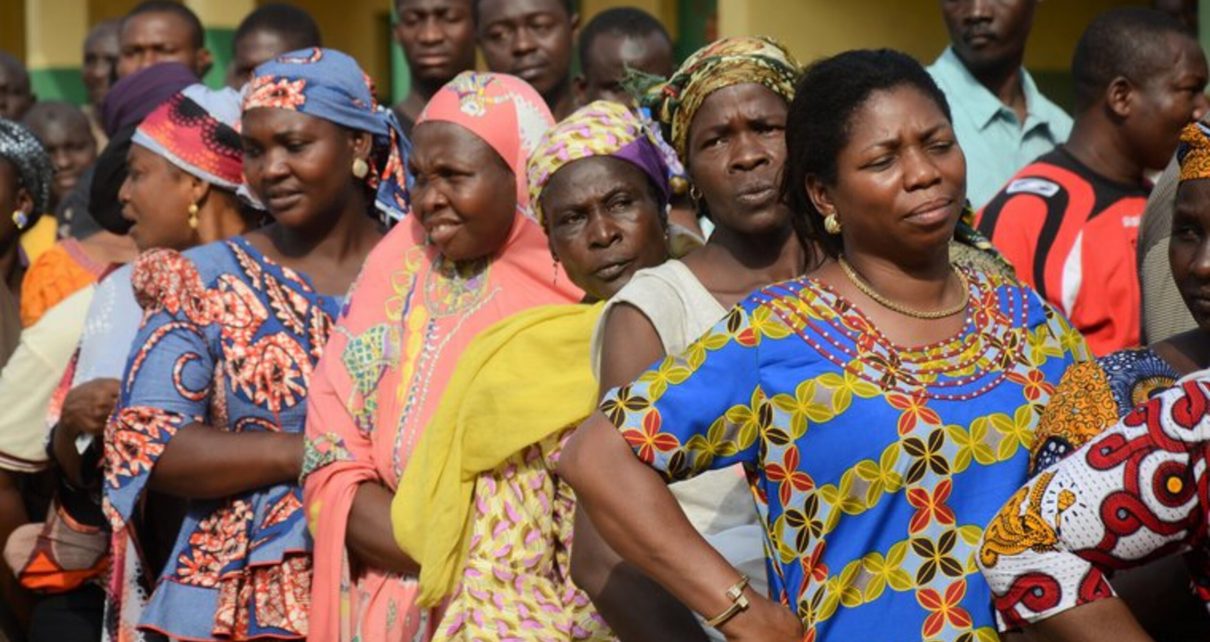
wole.olaoye@gmail.com
The question on the lips of many Nigerians as the nation marks another Democracy Day is this: Is democracy defined only by the fact that the government is led by elected civilians?
That question becomes even more germane now that the Nigerian government has taken certain measures considered anti-democratic by a section of the citizenry, especially the millions of cyber-revolution natives who congregate around the global cyber-village every second of the day to greet, discuss, quarrel, trade, gather information and improve their lot in many hitherto unbelievable ways.
The credit for changing Democracy Day from May 29 (the anniversary of military handover of power to a civilian administration in 1999) to June 12 when Moshood Abiola defied the national fault-lines of religion and ethnicity to win a pan-Nigerian mandate — that credit goes to the Buhari administration and history will give him a kind mention for that.
However, Nigeria is more divided today than at any other time in the country’s history. The supreme irony is the fact that the man who gave official recognition to June 12 is presiding at a period of unprecedented turmoil in the land.
Nduka Obaigbena’s Arise News Channel carried out a journalistic coup by getting an exclusive interview with the most media-shy leader Nigeria has had since 1960. The reclusive Sani Abacha doesn’t even come close. Coming shortly before June 12, both the interviewee and his interviewers chose the right moment.
Like all interviews, this one generated its fair share of post-mortems as can be seen in both the formal and digital media. The president’s response to questions on open grazing, succession, nepotism and the construction of a railway line to Maradi in Niger Republic attracted the most virulent comments from many critics in Nigeria who took full advantage of the rare opportunity to spar with the president in the virtual marketplace of ideas.
On the president’s statement that his party was being reorganised so that nobody could sit down in Lagos and decree how things should run, his aides quickly countered the avalanche of criticism by opponents who alleged that the president was throwing an uppercut at the jaws of his political ally, Bola Ahmed Tinubu. “The mention he made of Lagos”, says Garba Shehu, “was not a reference to the respected party leader, Senator Bola Tinubu ,as the opposition party’s predatory designs would put it in order to damage the excellent relationship between the two of them”.
As a Nigerian committed to the progress of Nigeria, I believe that we all have to help those at the helm with ideas that can help them achieve our collective dream of a better life for all. In that spirit, we have to ask those in power whether they accept the full tenets and implications of democracy as a system of government, or are they satisfied with just running fiefdoms in civilian garb? Does the mere fact that the political leader is an elected civilian automatically translate to democratic governance?
I am not the only one who thinks that democracy ought to be about institutions and the rule of law as against the rule of man. Whereas an autocrat can be attired in agbada, the flowing robe has no essential connection with the meaning of democracy. Thus, it is an aberration when those around the corridors of power, be they APC or PDP, treat the elected leader as a semi-god.
I examined this issue in my Daily Trust column of January 9, 2017. One of the frustrations of a columnist is that you sometimes feel like a broken record, or that your insights just bounce off the radar of the audience the way water bounces off the back of a duck.
In the said piece titled, ‘Banishing the Kabiyesi Syndrome’, I said inter alia:
“It has become part of our national character to deify temporary tenants of power. We isolate them from the people to ensure that the only way they can know what is going on is to ask those who have formed a cabal around them. At every level of governance you find elected officials who came from among the people but suddenly no longer recognise the people and their pains, hopes and aspirations.
“I call it the ‘Kabiyesi’ syndrome — the transmogrification of an elected person into a pseudo royalty as if his position was hereditary like that of the authentic royal father. The word ‘kabiyesi’ means “no one dares question you”, and it is respectfully used for royal fathers in Yorubaland. That is the real thing, not this fake one where lizards insists on being called dragons. The real Kabiyesis are close to the people, these fake ones merely use the people as a ladder to ascend to power. But I digress.
“So, the leader falls into a trap from which only Providence can extricate him. He starts having messianic complex. I have seen this play out over and over again at the local, state and federal levels that I wonder if those leaders were never prepared for the high position they occupied to the extent that they had to encounter empirically verifiable reality about the problems facing the people from sycophantic third parties”.
On the occasion of this year’s Democracy Day, I will repeat my 2017 counsel to President Buhari, especially as his administration inches towards the evening of its mandate:
“In terms of style, Buhari has to change gear… The president is being turned into a national monument that is viewed only a couple of celebratory times a year. Why must he be hemmed in as if he’s being ‘protected’ from the people? We have had half a dozen tragic occurrences in the last one year at which the president ought to have made even a symbolic appearance to assure the people that he has their back. Any PR expert worthy of his hire would tell you that a million video clips of the leader may not have the effect of one single public appearance to reassure the people.”
The above can be said of many of our governors, too, who have become so removed from the people who voted them to power that they could as well have come from colonial Britain.
Democracy shouldn’t just be a label we affix to how our autocratic leaders carry on their affairs as if the mere act of voting reduces the voters from citizens to subjects. No matter what paraphernalia of transient power surrounds him/her, a true democrat knows that he is an employee of the people and that stratagems for their well being and happiness ought to consume his every waking moment.
Happy Democracy Day!
Fake News & Ethnic Baiting
I received the following story, attributed to Uche Onyeagocha, from a concerned Nigerian after some Northern politicians threatened to attack Igbo interests in the North following the reported attack on Northern onion traders at Enyiogugu, Imo State, and the burning of cows in Akwatta Junction, Anambra State.
It turned out that whereas the substance of the story is true, the dramatis personae were totally different. According to the story:
“The tragedy of the onion issue at Enyiogugu is that it belongs to an Mbaise man. His name is Vincent Ikeotuonye Ugoeke from Umuawada Onicha Ezinihitte Mbaise LGA. The man also owns the truck. His two drivers who are Northerners had been lodged in a hotel before the incident.
The onion, the truck, their owner and the looters are all Mbaise. What is the quarrel of the Northern Onion Association? They quickly concluded that Northerners had been attacked and placed an Onion embargo on Ndigbo.
“The burning cows in the incident at Akwatta junction, Awka, belong to Mr Cosmas of Umunnachi in Dunukofia LGA of Anambra State. His truck carrying cows lost control, killed some and wounded some people. Angry bystanders got mad and set the truck with the cows on fire. Truck, cows, owner, people killed and wounded, angry mob are all Anambra people. No northerner involved.”
The lesson of the story is that one should be very careful in this era of fake news, lest one makes irreparable errors that can further rend the tattered fabrics of society. When you hear such a story, check, check and check again!
- Wole Olaoye is a public relations practitioner and a public affairs commentator and can be reached at wole.olaoye@gmail.com


